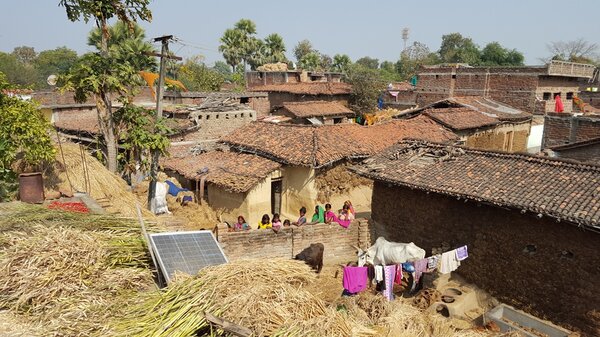Developing and Implementing Smart Grids in India

The project in a nutshell:
Problem definition
In India about 400 million people have no access to electricity. Smart grids for rural electrification can address the problem of (energy) poverty.
In this project we ask: How can smart grids be successfully developed and implemented in India.
Approach
Successful smart grid development is not simply a matter of getting the technology right: social embedding, ethical acceptability and institutional support are at least as important.
Goal(s)
The responsible implementation of a smart grid prototype in India.
Funding info:
NWO (Netherlands Organization for Scientific Research) project granted under the funding line Responsible Innovation on the development and implementation of smart grids in India.
Duration: 2015-2019
Project leader(s):
Prof. Dr. ir. Geert Verbong
Dr. Johanna I. Höffken
Eindhoven University of Technology, School of Innovation Sciences, Technology, Innovation, Society Group, NL
Project team members (in alphabetic order of institutions):
Eindhoven University of Technology, NL:
Dr. Auke Pols, School of Innovation Sciences, Philosophy and Ethics Group
Power Research Electronics B.V., NL:
Menno Kardolus, Chief Executive Officer
Rural Spark Pvt. Ldt., India:
Evan Mertens, Director of Technical Innovation,
Marcel van Heist, Director Design
TERI University, India
Prof. Amit Kumar, Department of Energy and Environment
Extensive Summary:
India faces two major challenges in the field of electricity generation and use. Its electricity demand is growing while its central grid suffers from severe performance deficits. Meanwhile, a significant part of India’s population does not even have access to the central grid. The Indian government aims to address these challenges in part by using smart grids, energy networks that use ICT to match supply and demand from multiple sources. However, successful smart grid development is not simply a matter of getting the technology right: social embedding, ethical acceptability and institutional support are at least as important. This project therefore sets out to answer the question: How can smart grids be successfully developed and implemented in rural India?
The project’s work is divided into five work packages (WPs). WP1 investigates technical specifications and develops a smart grid prototype. WP2 investigates how smart grids can be embedded and commercialized in the rural Indian energy market, using the Hidden Design method. WP3 investigates how societal and institutional factors affect the viability of smart grid implementation and use in India, using an ethnographic approach in combination with insights from transition studies. WP4 addresses ethical challenges, especially the question to what degree hidden design can replace deliberative processes as a fair and just method of stakeholder involvement. WP5 investigates which key factors affect the potential for upscaling smart grids throughout India. Goal of the project is to answer the research question by the actual responsible development and implementation of a smart grid prototype.
For more info and updates please have a look at the website www.indiasmartgrids.com